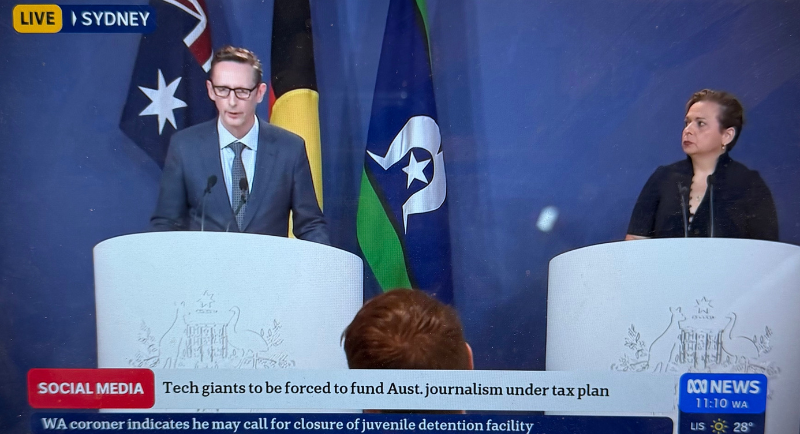The Federal Government has announced a new News Bargaining Incentive aimed at supporting Australian news media through financial agreements with digital platforms.
In a press conference on Thursday, Assistant Treasurer Stephen Jones reaffirmed the Albanese government’s commitment to ensuring a “strong, viable and robust independent news media sector and independent journalism.”
“The initiative that Minister Rowland and I are announcing today is all about achieving that objective,” Jones said.
The News Bargaining Incentive will amend the existing code to encourage agreements between digital platforms and news organisations. This will include a financial charge on platforms with Australian-sourced revenue exceeding $250 million.

Key features of the initiative include:
• A charge on relevant platforms based on their Australian revenue.
• A generous offset for platforms that voluntarily enter into agreements with news organisations.
“The objective is not to raise revenue,” Jones added, “but to incentivise agreement-making between platforms and news media businesses in Australia.”
The policy is set to commence on 1 January 2025, with further consultation to take place over the next two months.
Meta pushes back
Tech giant Meta, one of the platforms likely to be impacted, has expressed concerns about the new initiative.
A Meta spokesperson told Mediaweek: “The proposal fails to account for the realities of how our platforms work, specifically that most people don’t come to our platforms for news content and that news publishers voluntarily choose to post content on our platforms because they receive value from doing so.”
While Meta agrees that “the current law is flawed,” the company remains concerned about “charging one industry to subsidise another.”
Supporting public interest journalism
Minister for communications Michelle Rowland highlighted the broader goal of the initiative: addressing disruptions caused by digital platforms to Australia’s media landscape.
“The growth of digital platforms has threatened the viability of public interest journalism,” Rowland said during the press conference.
Rowland emphasised that Australians rely on search and social media for news and that digital platforms must support access to quality journalism.
“By establishing the news bargaining incentive, the government is ensuring that large digital platforms are incentivised to either renew or enter into commercial deals to remunerate Australian news organisations.”
She added that the incentive is designed to address gaps in the existing code, which “does not provide the right incentives for some platforms to do deals.”
What’s next?
Jones stated that the government anticipates the News Bargaining Incentive will generate revenue levels similar to those achieved through agreements struck since 2021.
He clarified that the offset system is designed to favour platforms that voluntarily negotiate deals with news media businesses, encouraging them to continue or establish new agreements.
“News publishers and digital platforms both have a role to play in serving the needs of citizens and consumers in our democracy. This incentive is another important step towards supporting media diversity and public interest journalism in Australia,” Rowland concluded.
